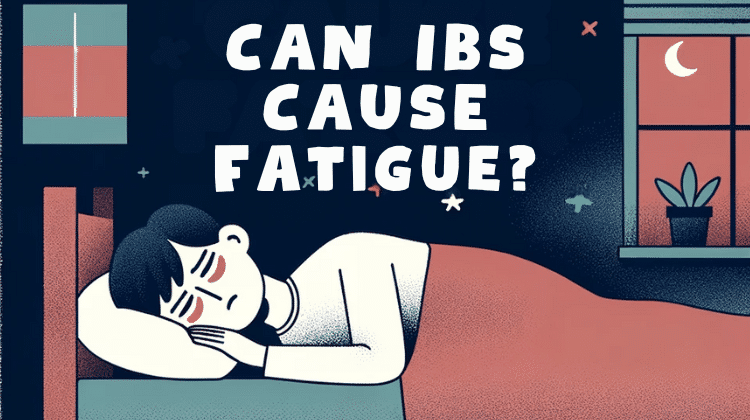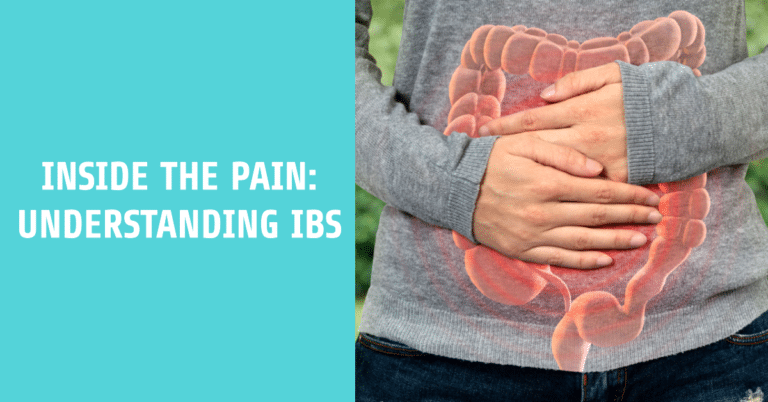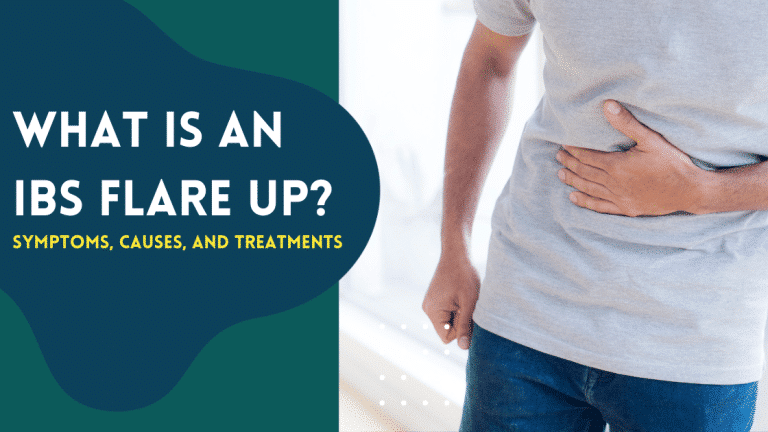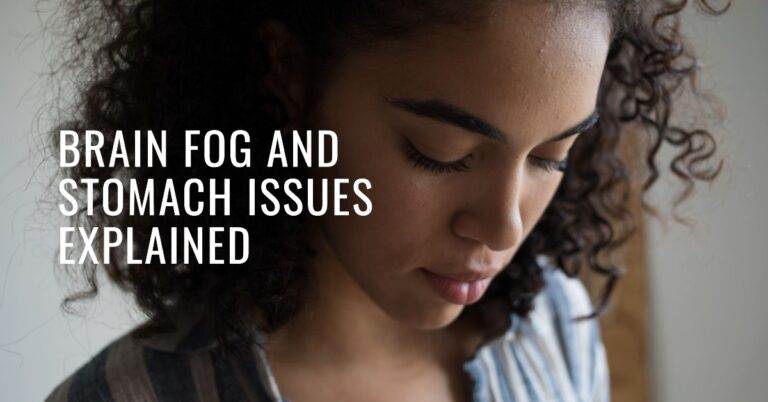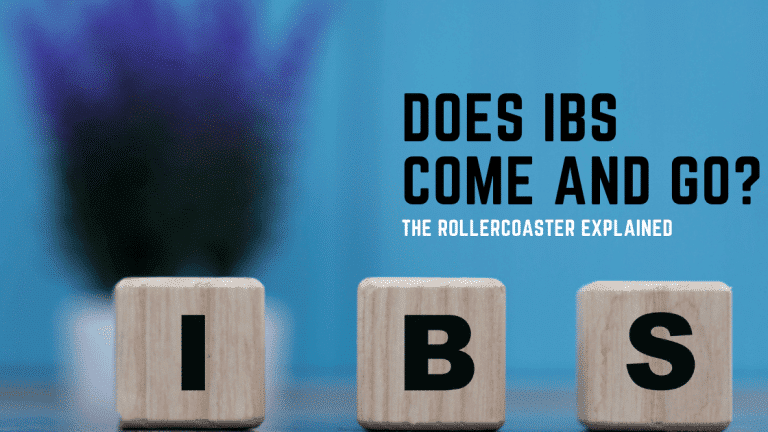Is IBS Worse At Night? – How Irritable Bowel Syndrome Disrupts Slumber
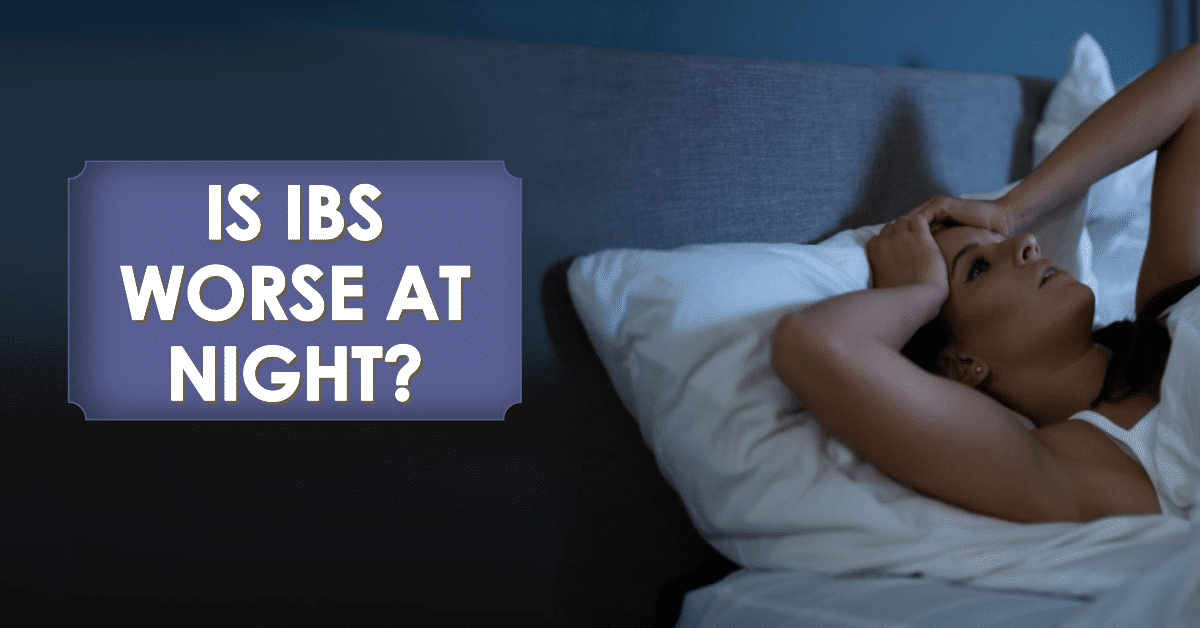
As someone dealing with sleep issues that IBS brings, I often dread the sun setting when my stomach pain worsens, affecting the quality and amount of sleep I get.
The unfortunate reality is that if you live with irritable bowel syndrome, your sleep may be impacted by this often debilitating condition because of its ability to cause insomnia, occurring in up to 40% of IBS patients [1].
Though people with IBS can experience sleep disturbances, by understanding how it affects sleep, we can better manage flare-ups. Take comfort in knowing you aren’t alone.
Read on to discover an answer to ‘is IBS worse at night?’ and how you can improve your sleep quality and duration once and for all.
Key Takeaways:
- Symptoms like abdominal pain and night sweats can disrupt sleep quality and duration
- Poor sleep exacerbates IBS problems like brain fog and pain sensitivity
- Improving sleep hygiene and managing IBS symptoms can break the vicious cycle
- Keeping a diary of sleep and IBS patterns helps you find solutions to improve quality of sleep
How IBS Symptoms Can Torpedo Your Sleep
For many IBS patients, symptoms tend to act up at night or in the wee hours of the morning – prime sleeping time.
Waking up to urgent diarrhea or intense stomach cramps multiple times interrupts your sleep cycle and prevents you from ever entering the restorative deep sleep stage.
Even if you don’t wake up, pain and discomfort can cause tossing and turning that diminishes sleep quality. How can you get peaceful shut-eye when your belly is gurgling like an angry volcano? It’s next to impossible to relax under those conditions.
On top of the direct sleep interruption IBS causes, living with chronic illness can create anxiety and depression.
Worrying about your IBS symptoms worsening, preventing you from participating in activities or enjoying life can negatively impact your ability to fall and stay asleep.
When You Don’t Snooze, You…Get More IBS Symptoms?
Lack of sufficient ZZZs doesn’t just leave you groggy and craving caffeine; it can also worsen your IBS symptoms. Here’s a taste of how:
- Increased pain sensitivity: Your threshold for abdominal discomfort goes way down when you’re running on fumes. What you could withstand well-rested feels unbearable when you’re exhausted.
- Impaired gut motility: Deep sleep is critical for digestive health. Without it, digestion slows down, contributing to the constipation/diarrhea rollercoaster.
- Higher stress levels: Not getting enough sleep activates your body’s stress response, which can trigger tummy troubles. Chronic stress also exacerbates GI issues over the long-term.
- Reduced immune function: Sleep is when your immune system regenerates and releases cytokines that help fight inflammation. Skimping on sleep leaves your body’s defenses depleted.
- Altered gut bacteria: Your microbiome communicates directly with your central nervous system, known as the gut-brain axis. When your sleep schedule gets thrown off, it disrupts this critical crosstalk.
Clearly, a lack of quality sleep ends up tossing gasoline on the IBS fire. It becomes a vicious cycle of your IBS disturbing your sleep, and the resulting sleep deprivation worsens your IBS.
Nip it in the bud before you get trapped!
Tracking Your Rest and Symptoms
A sleep and symptom diary can provide insight into patterns showing exactly when and how your IBS and slumber intersect.
Note details like:
- What time you fell asleep and woke up
- Overall sleep quality
- IBS symptoms and severity upon waking and throughout the day
- Diet, stress levels, exercise and other relevant lifestyle factors
- Any medications or therapies used
Once you have a few weeks of data, look back to identify potential triggers and relationships.
For example, you may see that sleep is worse and symptoms increase after having spicy food for dinner.
Or, that getting at least 7 hours of sleep correlates with fewer IBS issues the next day.
Ready to Snooze Soundly? – Here’s My Final Thoughts on Is IBS Worse at Night
The connection between sleep troubles and exacerbated IBS makes addressing sleep problems a priority for patients.
Besides keeping a diary, here are some top tips for improving sleep when you have IBS:
- Optimize your sleep environment – cool, dark and comfy.
- Stick to a regular bedtime and wake time.
- Limit blue light exposure in the evenings.
- Avoid spicy/fatty foods, alcohol and big meals before bed.
- Manage stress through yoga, meditation and gut-directed hypnotherapy with tools like Nerva IBS.
- Consider cognitive behavioral therapy for insomnia.
- Ask your doctor about anti-anxiety meds or low-dose tricyclic antidepressants.
- Try ginger tea, magnesium supplements or acupuncture to promote sleep.
- Use white noise/weighted blankets for relaxation.
While occasional sleepless nights are expected with IBS, you should be able to achieve restorative slumber most nights.
Don’t settle for subpar sleep that makes IBS symptoms worse – take control with these lifestyle adjustments and therapeutic options. Rest easy, friends!
Also Read
Disclaimer: This content is based on my personal experience as an individual diagnosed with celiac disease and IBS (Irritable Bowel Syndrome) who follows a strict gluten-free diet. This does not constitute medical advice. Please consult a medical professional, nutritionist, or qualified dietitian for personalized, professional advice.

